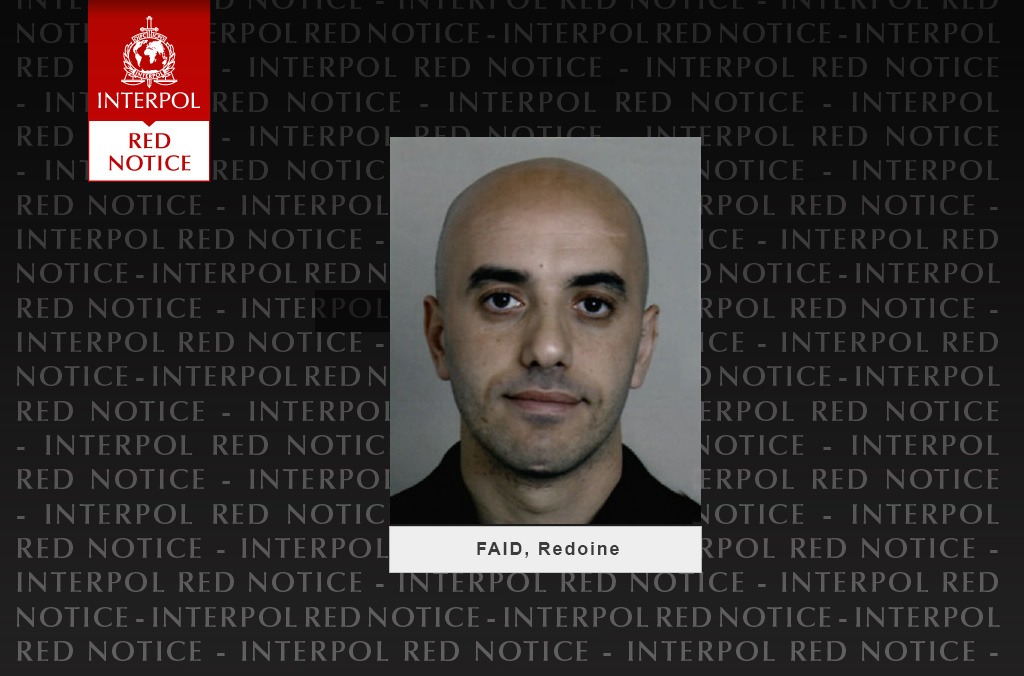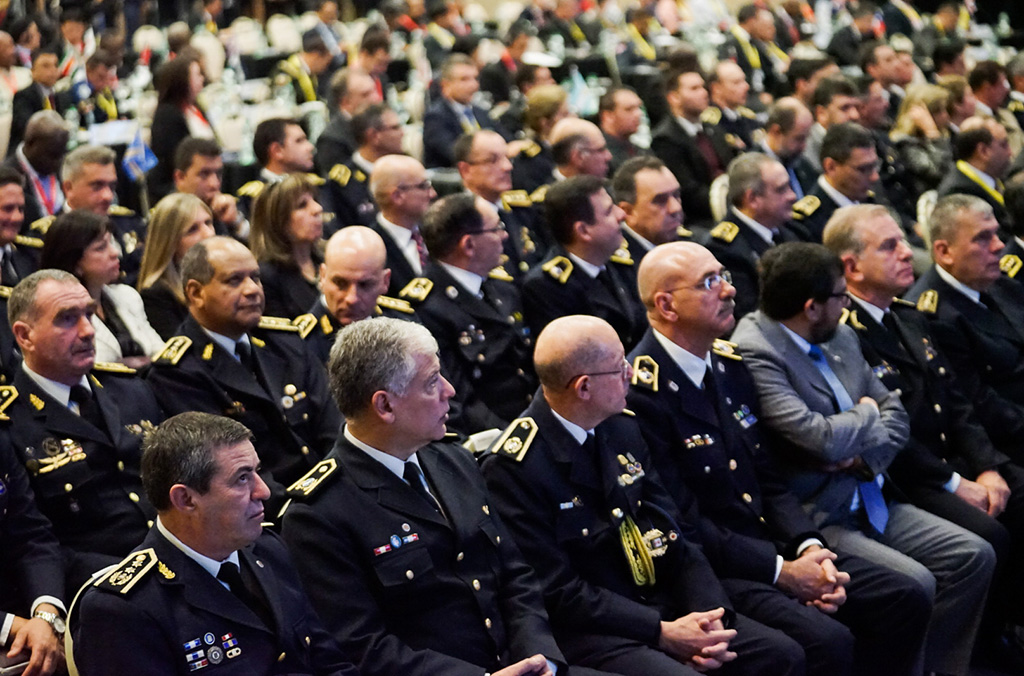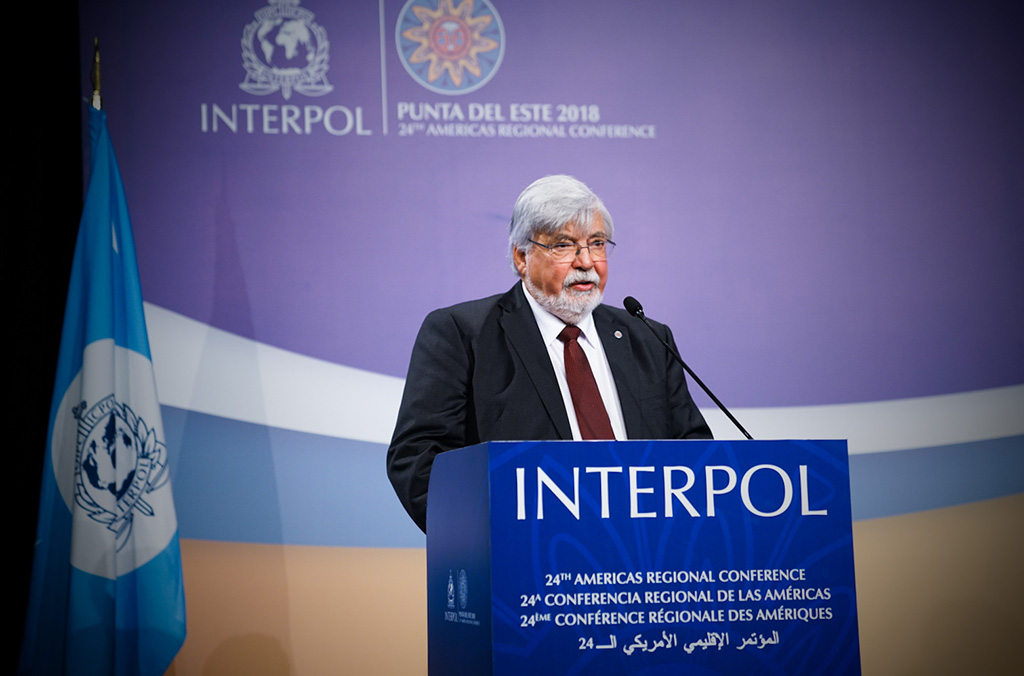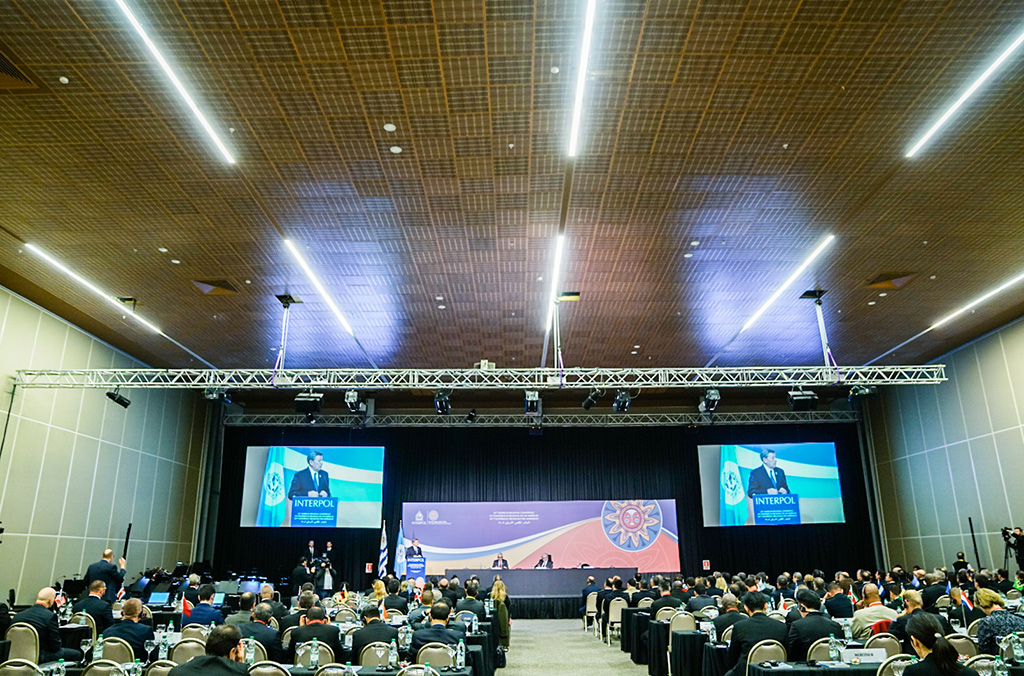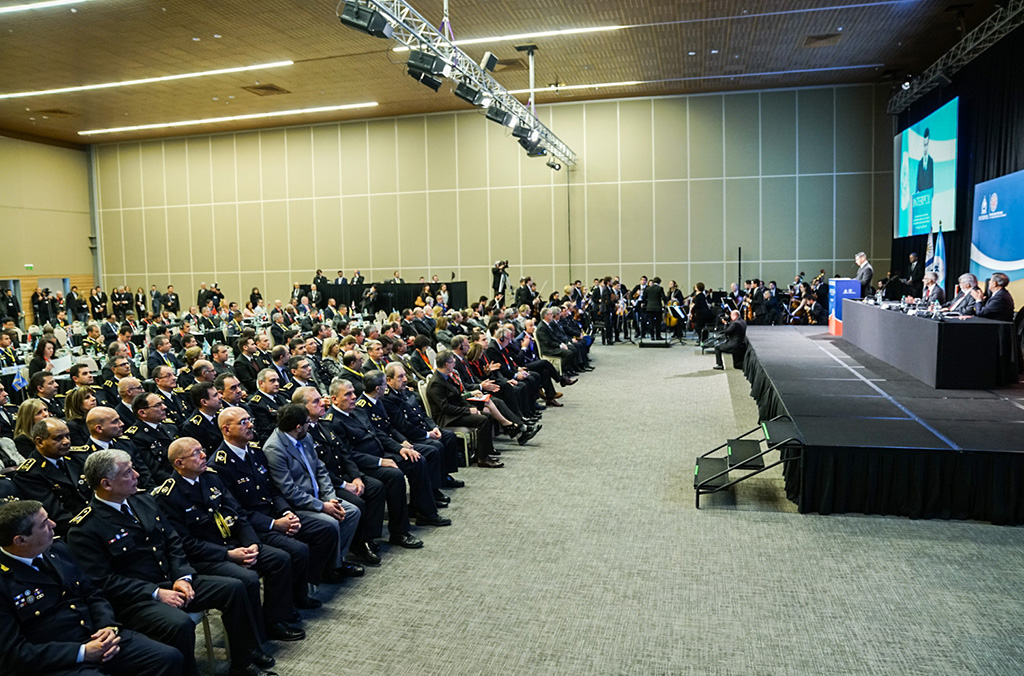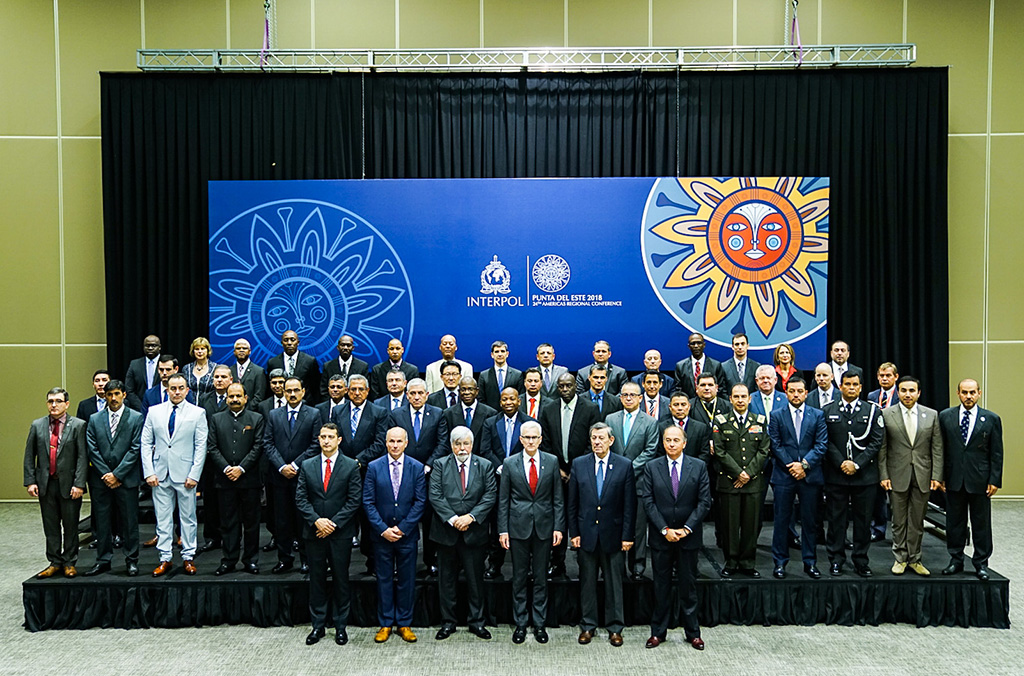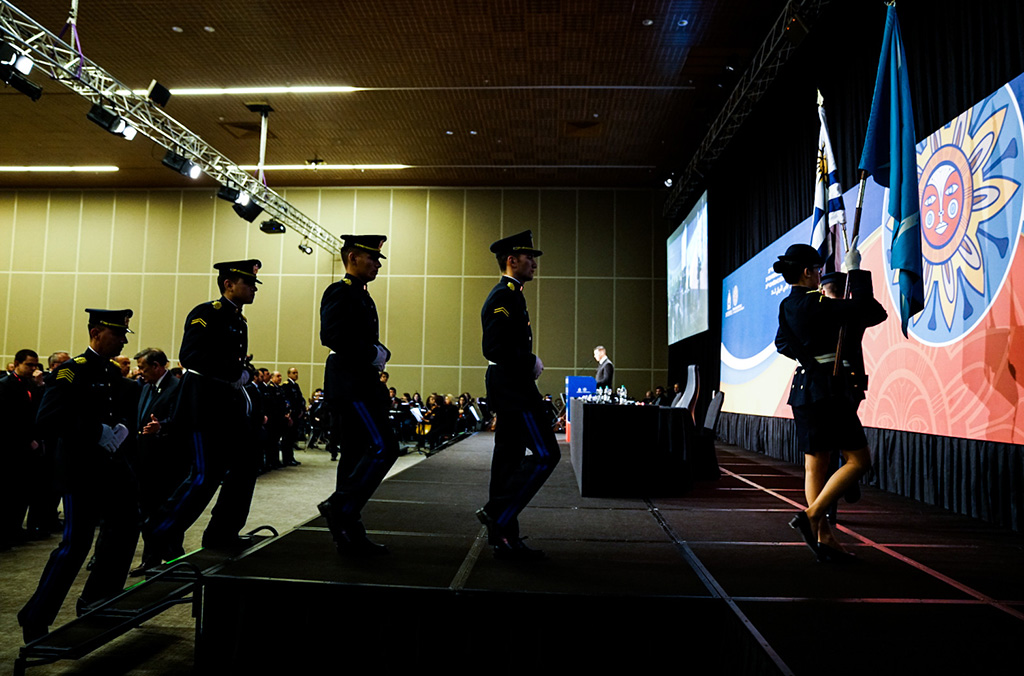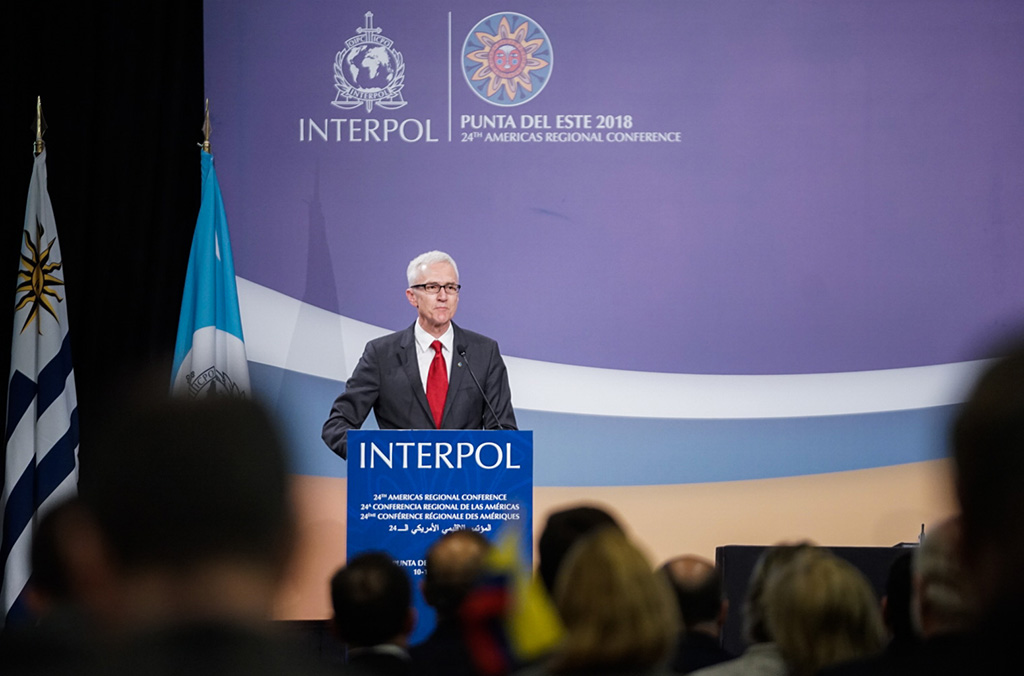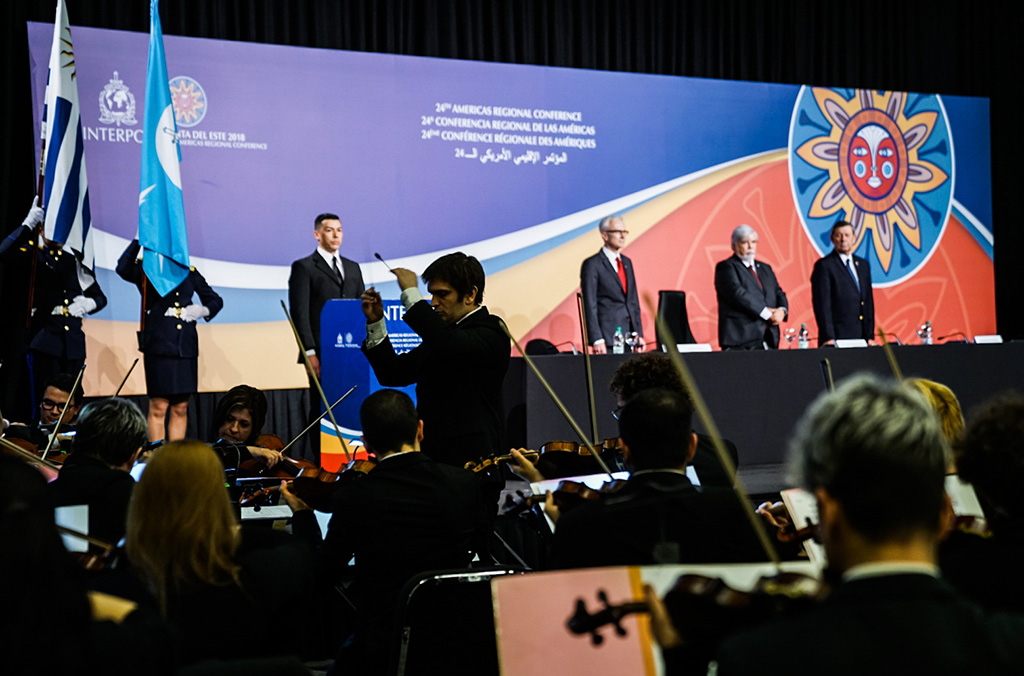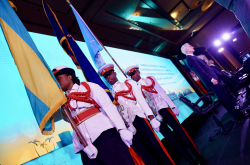PUNTA DEL ESTE, Uruguay – Police chiefs and other senior law enforcement officials from the Americas are gathering in Uruguay to address the region’s most pressing organized crime and terrorism issues.
Human trafficking is a key issue during the three-day (10 – 12 July) INTERPOL Americas Regional Conference, following the recent Operation Libertad which rescued nearly 350 potential victims of sexual exploitation and forced labour across the Caribbean, Central and South America.
“This conference will be dealing with issues of great importance for our citizens,” said Uruguay’s Minister of Foreign Affairs Rodolfo Nin Novoa, opening the event. “INTERPOL strengthens the necessary dialogue and constant interaction between countries to ensure effective and efficient information exchange to tackle organized crime and terrorism in a coordinated manner.
“These evils permeate our societies and result in an increase in crimes that affect the safety of citizens, causing enormous damage to our economies and limiting the possibility of developing projects that ensure the well-being of the men and women who contribute every day to building a better world,” said Minister Nin.
Uruguay’s Minister of the Interior Eduardo Bonomi told delegates, “Mutual assistance between regional and international bodies is the solution to the security problems affecting our countries.
“It is necessary to continue to expand dialogue and build trust, strengthening operational assistance, sharing technology and the exchange of good police management practices. It is up to us to ensure that police cooperation is not just good intentions but is a reality in the service of our citizens."
INTERPOL Secretary General Jürgen Stock said building on regional strengths is essential for a strong global security architecture which is responsive to the evolving threat landscape.
“The weaponizing of technology means that drugs trafficking is becoming as easy as placing an order on a smartphone,” said Secretary General Stock.
“When crimes are being committed at the touch of a button, law enforcement needs to ensure its response is as swift and effective. This is why INTERPOL is developing a new device which will enable police anywhere in the world to have remote access to our databases as well as biometric capabilities,” added Mr Stock.
Underlining the value of biometrics, the INTERPOL Chief highlighted the arrest of an internationally wanted murder suspect in Buenos Aires earlier this year after his image was identified as a potential match by INTERPOL’s facial recognition unit.
The 33-year-old Slovak national who was wanted via a Red Notice by Czech authorities, had been on the run following a murder 10 years ago.
During the conference, delegates will also be briefed on the creation of the INTERPOL Regional Counter-Terrorism node in South America. This will be one of several around the world to assist in coordination and operational support efforts, and working in a close-knit network under INTERPOL’s Global Counter-Terrorism Centre.
Innovation in combating cybercrime and cyber-enabled crime will also be a point of discussion with countries sharing best practice and identifying areas for further training and development.
More than 80 participants from 31 countries are taking part in the conference.
Countries involved
Related news

260 suspected scammers arrested in pan-African cybercrime operation
26 September 2025




